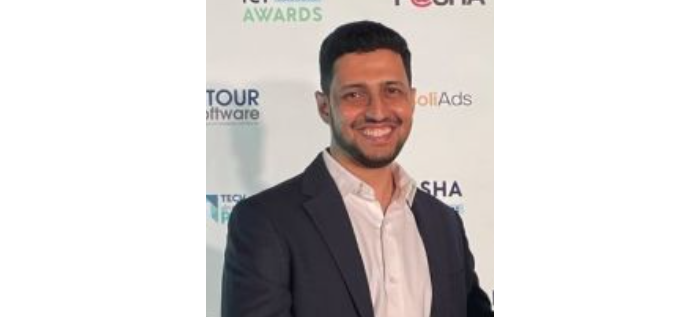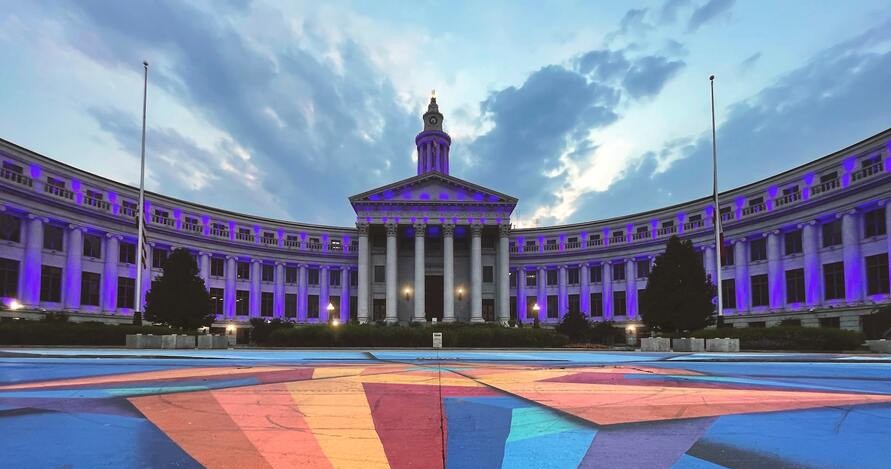Could you tell us more about yourself, your career and how you developed an interest in the crypto world?
I have around 15 years of working experience, all in tech, mostly in the banking industry since I have worked in Citibank for 10 years. By 2017, I started to move out and explore other domains as well, like insurance (Life + General), logistics (from trucking to last mile) and properties. I have always been interested in technology, as I have done my bachelor in computer engineering and masters in software project management. Regarding your question about interest in crypto, I would like to answer it from two perspectives. First, around two years ago, in 2020 I started seeing my friend and colleagues investing in Bitcoin and other alt coins. I did my research, opened up an account just to test, and started investing my own money. This is the first perspective where I became a User of crypto technology. Second, since I have a technological background, I also started to dig deeper into how crypto works by reading articles, news, podcasts, newsletters etc. Therefore, my perspective shifted from being a User to a Developer/Builder, or you can say a researcher in a way. I have been attending many conferences online and in-person as well to get as much information as possible.
You are an ambassador for Blockship DAO, could you tell us more about what you do in this role?
Before I tell you about my role, I would like to explain what Blockship Dao is. BlockshipDAO is a Web3 awareness and learning initiative that helps web3 enthusiasts get on-board and learn and share with the community. Since I am an ambassador, my role is to promote the message of BlockshipDAO and help people in their Web3 journey. I also go to events, talk to people about it, and try to increase engagement for the DAO, I try to meet everybody working in Web3 space. I talk to them and learn from them. I get to know about what they do, whatever their communities are. Then I explain Blockship DAO to them in order to ensure awareness.
What does the governance process in Blockship Dao look like?
The main aspect of any DAO is the governance, which is usually decentralised. This means that everybody has a say in it, as it is not authoritative. There is no CEO or no controlling authority, so everyone in the community can jump in and contribute. At Blockship DAO, we developed a people-centric type of governance by making sure that everybody is involved. As of now, BlockshipDAO is still working on their governance mechanism to make sure that the community has the power to make decisions. One thing I would like to clarify, which might be causing you confusion, is that for Blockship DAO there is no DAO app currently. Therefore, we manage the DAO through a Discord server.
Do you recognize any particular challenges in the governance process of DAOs in general and of Blockship Dao in particular?
If you have a multi-sig DAO, I think it might be more time consuming to come to a decision. Furthermore, there might also be questions about the validity of the decision. Therefore, it is essential to make sure that people actually know what they are voting for and what is being asked from them to vote for. Nonetheless, this is a risk that a decentralised organisation has to take and certain measures can be taken to minimise these issues.
Do you know if Blockship Dao has ever needed to cope with a Sybil attack? What is your opinion about this and how did the Dao manage to resist?
We have not faced any Sybil attack yet but let me explain what Sybil attacks are. As we all know, in web3 decentralisation is crucial. This means that everybody has the ownership and there is no singular centralised server but many different nodes or computers. What happens in a Sybil attack is that attackers would create more and more nodes and pretend to be a different person for every node. This may lead to a distortion of the decentralisation of the DAO and allow attackers to gain control over the voting mechanism of the organisation if he manages to control 51% of the nodes. As I said, we are aware of this issue and will take this matter very seriously.
How do you manage to increase engagement at Blockship Dao?
Keeping people engaged is one of the biggest tasks of having an active community. We usually do weekly or biweekly group calls within the community to make sure everyone is on the same page and discuss new ideas, questions and comments. Furthermore, we have decided to start a blog where everyone in the community can contribute. Another thing to increase engagement is participating in events, both virtual and physical.
Moreover, we do weekly quizzes on our channels. We first do a podcast about a specific topic and then everyone can take a quiz about the podcast. It all creates huge awareness among members.
We take initiatives that not only caters to the serious side of the DAO’s goals but makes the people feel like a close-knit group where they can share their achievements, losses and casually chit chat.
Our aim is to create a community, not just an audience, where everybody can feel free to contribute.
What is in your opinion the most relevant challenge that crypto companies need to face today and how would it be possible to help them?
I think the Trilemma is one of the biggest challenges crypto companies are facing right now. The Trilemma means to find a balance between decentralisation, security and scalability. Therefore, the Trilemma is how to get all these three things together and make a chain. If you decentralise a lot, you might risk scalability but also security threats might increase. I feel that this is still the challenge for crypto companies or whoever is coming to the industry. However, some solutions are being developed at the moment meaning the Trilemma might be resolved in the future.
Do you think crypto regulation is going in the right direction? If you could give regulators one piece of advice, what would it be?
I was reading the other day that the Australian government has decided to take up regulation and the same is happening in Europe or in the USA. Nevertheless, I would focus more on Pakistan. Here, I think that regulators should embrace crypto as soon as possible. By embracing crypto, I mean to make it legal and to make it less difficult for people to trade in crypto. However, governments also have some valid concerns regarding AML (Anti-Money Laundering). But we need to get started as soon as possible.
Web3 is just starting, it is a great opportunity and we should not get into it after 15 years or 20 years. We should follow the example of our neighbour India, which legalised crypto a few months ago. Once we embrace crypto, then we will see what further regulations must be required. By that time, we will see how America, Europe and India are dealing with it. We will have test cases to work upon and then we can make our own regulation.
Lastly, in your opinion why should people be interested in the crypto world?
Again I would say there are two aspects just as I mentioned at the start of our discussion. One is purely financial as a way to make money. The other is technical, meaning that crypto/blockchain is a huge opportunity for the technological development. As cash is being replaced by cards and online payments, in the future crypto has the potential to replace FIAT payments.
For example, I saw in Dubai you can purchase a car and pay with your crypto account. In addition, we see fashion brands have started to accept crypto payments as well. Therefore, people have incentives to start doing transactions in crypto.
On the tech side, all the major tech companies are stepping into web3 or planning to do it. Facebook has changed its name for META and launched the Metaverse. Apple, Amazon, Netflix, Google (FAANG), Microsoft, Samsung, IBM, you name it and everybody is heavily investing in Web3. Therefore, I think it is important to learn about crypto, blockchain, NFT, web3. As I said it’s still quite early in Web3 space, so once you learn anything you can contribute in any way you can.


